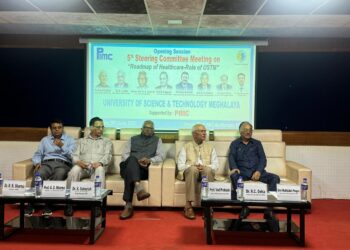Every year in India Children’s Day is celebrated on November 14. This day marks the birth anniversary of Jawaharlal Nehru, the first prime minister of independent India. Jawaharlal Nehru believed that children are the country’s greatest resource. In order to pay tribute to Jawaharlal Nehru who was fond of children , November 14 was selected as Children’s Day . Children’s fondly called him as ‘Chacha Nehru’.
MO Mathai, Nehru’s private secretary, wrote in his 1979 book “My Days With Nehru” that Pandit Nehru saw the future of India in the innocent faces of children.
Children’s Day in India was first observed in 1956. Back then Prior to Nehru’s death, Children’s Day was celebrated on November 20 which was observed as World Children’s Day by the United Nations. However, after the demise of Nehru, a resolution was passed in the Parliament to mark his birth anniversary as Children’s Day or Bal Diwas.
Child Rights in India
Pandit Nehru was a great advocate for children’s right and he always focused for fulfilled education system where knowledge is accessible to all. The Constitution of India, which came into effect on 26th January 1950, guarantees children’s rights. Constitutional Guarantees that are meant specifically for children include:
- Right to free and compulsory elementary education for all children in the 6-14 year age group (Article 21 A)
- Right to be protected from any hazardous employment till the age of 14 years (Article 24)
- Right to be protected from being abused and forced by economic necessity to enter occupations unsuited to their age or strength (Article 39(e))
- Right to equal opportunities and facilities to develop in a healthy manner and in conditions of freedom and dignity and guaranteed protection of childhood and youth against exploitation and against moral and material abandonment (Article 39 (f))
- Right to early childhood care and education to all children until they complete the age of six years (Article 45)
Quotes of Chacha Nehru for childen
Pandit Nehru always focused on the betterment of children . He believed, “The children of today will make the India of tomorrow. The way we bring them up will determine the future of the country.” He also felt children are the real strength of a country and the very foundation of society.
Moreover it is well known how much Nehru loved roses and children his love .He also used to compared the both , saying that children were like the buds in a garden. They should be carefully and lovingly nurtured, as they were the future of the nation and the citizens of tomorrow.
Today on his 133rd birth anniversary lets go through some of Jawaharlal Nehru’s most famous quotes on children:
- “Children are like buds in a garden and should be carefully and lovingly nurtured, as they are the future of the nation and the citizens of tomorrow.””Only through right education can a better order of society be built up.”
- “The children of today will make the India of tomorrow. The way we bring them up will determine the future of the country.”
- “The only way to reform them (children) is to win them over with love. So long as a child is unfriendly, you can’t mend his ways. He can be disciplined, if his attention is drawn to some other activity, like a voluntary body in Delhi (1960s) “Bal Sahyog” used to do. They learn many things there during vocations, without any compulsion of sort and then their minds get diverted to constructive channels.”
- ”A university stands for humanism, for tolerance, for reason, for the adventure of ideas and for the search for truth.”
- “The object of education was to produce a desire to serve the community as a whole and to apply the Knowledge gained not only for personal but for public welfare.”
- “The vast army of children across the world, outwardly different kinds of clothes, and yet so very like another. If you bring them together, they play or quarrel, but even their quarrel is some kind of play. They do not think of differences among-st themselves, difference of class or caste or color or status. They are wiser than their father(s) or mother(s).
- “As they grow up, unfortunately, their natural freedom is often eclipsed by teaching and behavior of elders. At school, they learn many things, which are no doubt useful, but they gradually forget that essential thing to be human and kind, playful and make life richer for ourselves and others”.
- Children do not think of differences amongst themselves.
- I may not have time for adults, but I have enough time for children.









